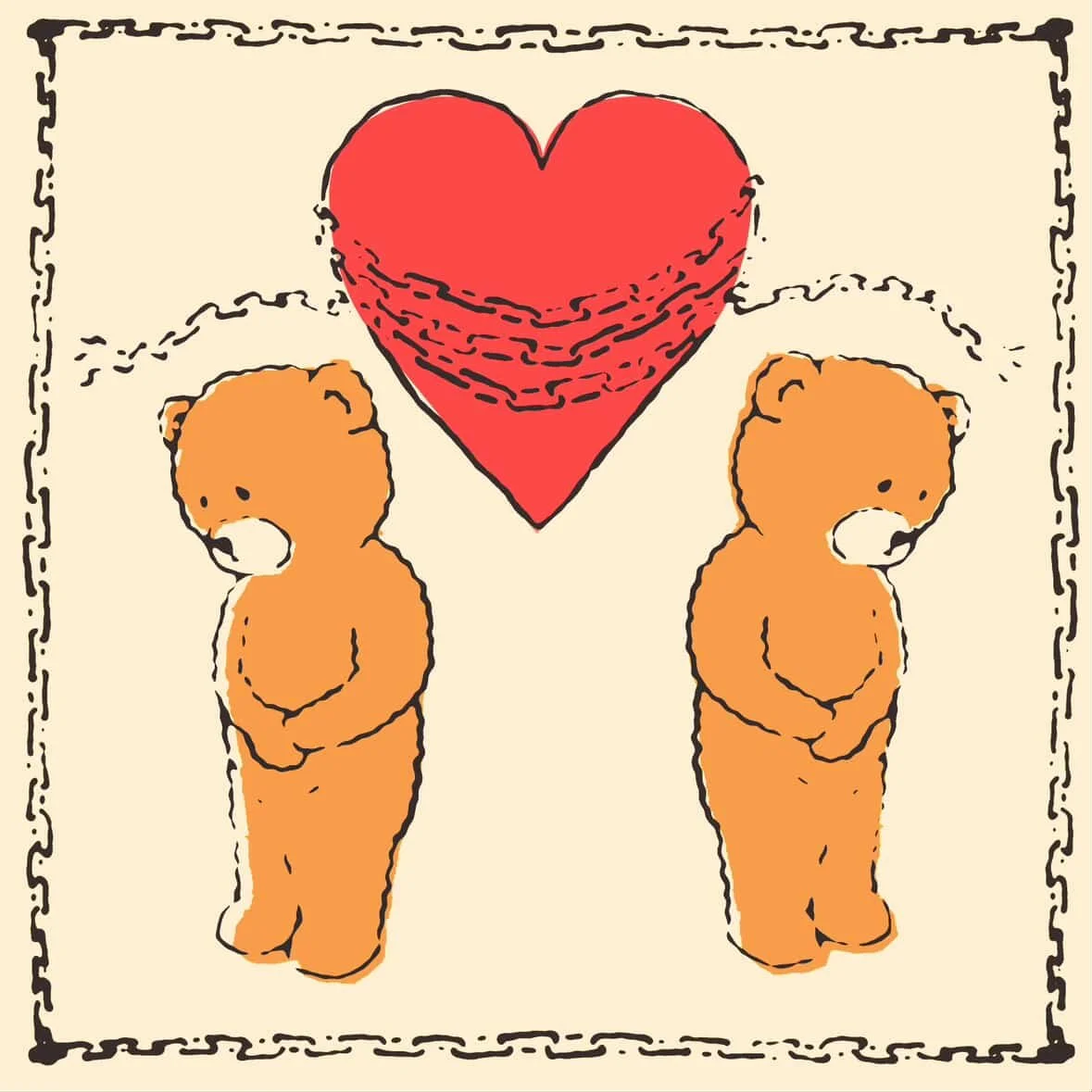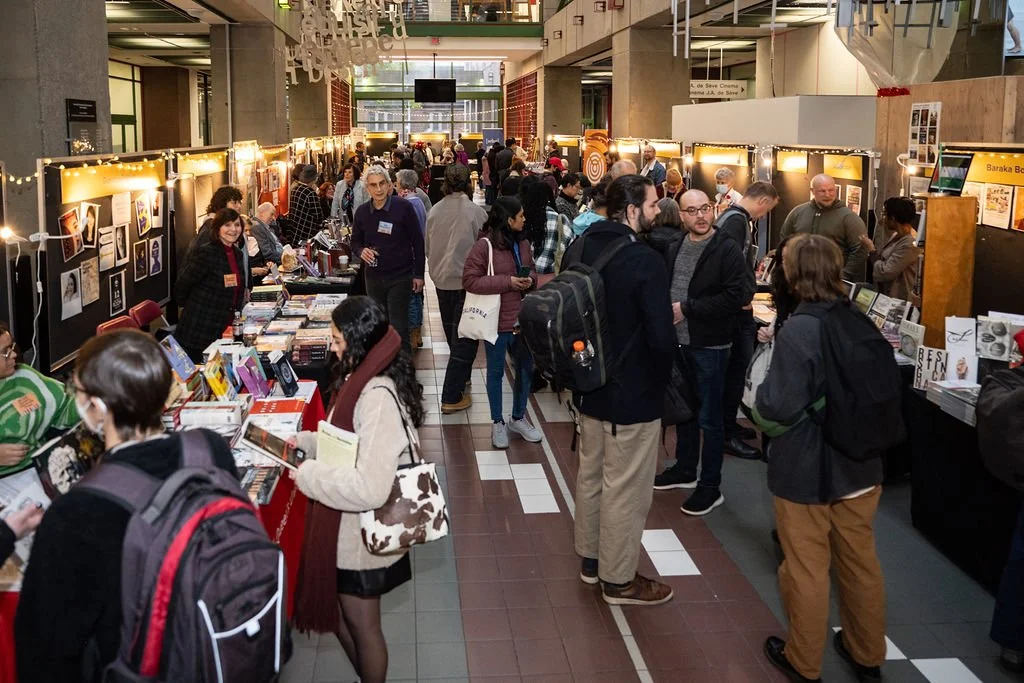Body Journals: Dana El Masri on Senses and Sense of Self
Dana El Masri is an Arab-Canadian perfumer & interdisciplinary artist. She is the owner and creator of Jazmin Saraï, a perfume brand exploring scent, sound, and culture. I was introduced to her perfumes through a friend a couple of years ago, and have been amazed by both the scent and concept of her creations. She uses a synesthetic approach to creating her perfumes and scent-related projects, tying together music and perfume. I was so excited to interview her for this Body Journal given her unique relationship to her senses - especially scent and hearing - and the ways her senses, and subsequently her body, are embedded within her work. Delve into our conversation below to learn more about her work and her embodied understanding of scent, self-expression, and identity.
Simone: I would love to start with a little about how you define yourself, who you are. How would you introduce yourself?
D: I’m in an ever state of trying to define myself, or unlearning and removing how other people define me. I’m a creative. I’m an artist. I’m an emotional, sensitive being. By trade, I’m a perfumer. I like to connect different mediums and senses within my work. Essentially I’m a blender. It’s really finding the connections between things, which is also how perfumery works in a lot of ways. The more I explore perfumery, I realize how everything is connected and how perfumery covers all of these different industries and modalities.
S: You said connecting the senses. I think that’s really relevant to this conversation about the body. How does that come up for you in your interdisciplinary work, in perfumery.
D: Scent is intimidating for a lot of people to describe or to even experience, because it’s quite invasive. You feel it right away, it’s primal. Historically, all the philosophers thought it was a tertiary sense, an animal sense. Nothing to do with intellectualism, nothing to do with emotion, which, to me, is the complete opposite of what it is. The only way you can process scent is through the memory and emotion banks in your brain.
I see a lot of similarities between scent and sound. They’re both time-based, they’re both emotion-based, they’re both invisible. We have a lot of musical language in perfumery. Top, middle, base notes. A perfumer’s workspace is an organ. And I have a musical background, so I already had that in my head - and that’s really where the scent and sound developed together. I went into the synesthetic aspect of it and I was like, “What if I break down a song and then make an olfactory reinterpretation of that song?”
Simone: Tell me more about your musical background! Your value and understanding of interdisciplinarity is so clear through your experiences & interests.
D: I always wanted to be a singer. I actually moved to Canada to pursue a singing career and to study. I was also a ballerina when I was a kid. And I wanted to dance forever. That’s really what I wanted to do [when I grew up]. But I was also surrounded by many friends my age whose parents were very religious and that trickled down through them. And [my friend] basically said that my dancing was haram. It felt like she was telling me about [what to do with] my body - and how I shouldn’t put my body out there. I stopped dancing because I couldn’t get it out of my head. In the beginning, it was just about the love of dancing, and expressing myself, and being in the moment. There was no shame ever related to it. And now that there was this idea of being observed by someone and being judged - it changed my whole relationship with it - because it was no longer free.
S: I know sometimes when we internalize that shame at a young age it stays with us for a long time. Was there a point when you realized that the shame had dissipated? Or did you actively work on dissipating it to feel free? Are you still working through it?
D: I never got back to fully expressing myself as a dancer. I’m definitely still working through it. My friend is doing a project about shame - I just spoke to her about this. There were so many experiences I could have shared [with her], but this was the thing that popped up. I thought, “Wow, this must be something that I’m still trying to resolve within myself.” And [I want to] just hold the little Dana inside and be like, “Hey, it was okay. Fuck her. What does she know? You are so good.” And that’s a lesson for adult life. Why do you let someone else’s opinions affect you?
S: I think that your reaction as a young girl was normal. Especially people that we trust - they tell us something about ourselves and we listen. It sounds like you pulled an important lesson from that experience.
D: I think it’s something to do with freedom. When you have space to move and dance and jump - there’s something about that movement that literally frees you. And it’s funny because now I actually have a lot of structural problems. I have scoliosis - I was diagnosed as a teenager - and I have four rib humps that stick out of my chest. I feel constricted a lot. I always associated dance with freedom of movement - and now I feel almost caged in my own body.
I believe in meta-medicine - what is happening in your brain will also manifest in your body. When I saw someone about [the scoliosis] she was like, “Scoliosis is the idea of being afraid to be seen, and of hiding yourself,” and I thought, “Woah, could that be related?”
S: I definitely believe that there’s a connection there. I’m glad you’re healing from it. You shared that you grew up in Dubai and I know that your parents are Egyptian and Lebanese. I’ve noticed in your scents that you draw on a lot of Middle Eastern scents and music.
D: I try because there’s a lot of appropriation in my industry and a lot of misrepresentation. There are very few Arab perfumers on an artisan level, or who have control over the narrative that they’re sharing.
Arabic music is set up differently than Western music, so already it’s a totally different form of creation, which I thought was really interesting to explore. But I also grew up with that kind of music. Senses are, almost in their essence, nostalgic. So, it’s even harder to forget where you come from because sense is what connects you [to your identity]. Food and smells connect you to home. And that’s something I never want to forget.
I also just really wanted to have the narrative in my hands. In North America, there’s also so much propaganda. A lot of the images that you are being fed [of the Middle East] are often of violence, and anger, and war, and sadness, and blood. I didn’t want that. I just wanted to create new narratives of beautiful stories that do also exist. No Orientalism, no over-fantasy or exoticism, just purity and genuineness.
S: I sense that a lot when I smell your perfumes. Having all these roots and clear connections to the places you call home, how do you experience the connection between body and community? Is there a way you forge a connection between the body and culture?
D: I don’t know if there’s a word for it in English - I guess the closest word for it would be ‘yearning’. Yearning is a physical experience for me.
S: Where do you feel it?
D: In my heart. In my chest, in my shoulders. Everywhere where I’m actually crouched [from scoliosis]. It’s really weird. When I miss home, or when I’m trying to connect to that part of me, there is a physical yearning for being in that place. All the things that remind me of home are still very sensory. The plants, the colours, the feeling, the scent of the air, the gasoline - I almost feel a responsibility to translate it.
S: That’s really a beautiful sentiment - to physically feel love and connection to home with your whole body. What lessons or gifts has your body given you?
D: It’s given me a lot of lessons in the way that I’ve learned to appreciate myself. I had a really complicated relationship with my nose. I found it big. Growing up in the Middle East, where a lot of girls get their noses done, I just always felt ugly. I was always really afraid to show myself. And it’s the same theme of being seen, of showing my entire true self. It’s also now my biggest asset. My biggest gift. It’s about reconciling the dark and the light within me. And that’s always been the battle, which I reconcile through my body and through scent.
This insightful interview was everything I had hoped it to be and more. Dana is truly connected to her sensory and embodied experience. She has an exciting project on the way called The EP, which is a diffuser scent collaboration with four local musicians: Meryem Saci, Kallitechnis, Lunice, and Hanorah. It will be released in October, and you can find more information on the release of this project at her social links below. My thanks to Dana for sharing her story and her gifts with me.
You can follow Dana’s perfume releases and art on her brand’s Instagram
You can check out her offerings on her website
And, you can also check out her multisensory work here
Listen to an sensorially inspiring playlist by Jazmin Saraï here













